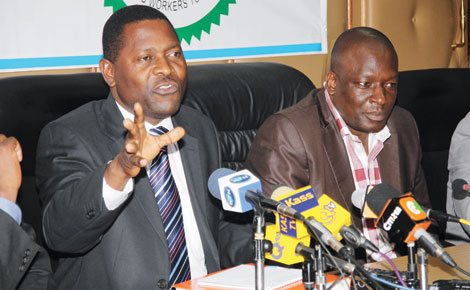×
The Standard e-Paper
Join Thousands Daily
 |
| PUSETU Secretary General Charles Mukhwaya (left) with union chairman Tom Odege address the Press at Knut headquarters in Nairobi, Wednesday. [PHOTO: JENIPHER WACHIE/STANDARD] |
By RAWLINGS OTIENO and IMMACULATE AKELLO
Kenya: Civil servants want the Government to suspend implementation of the new NSSF Act that is set to take effect on June 1.